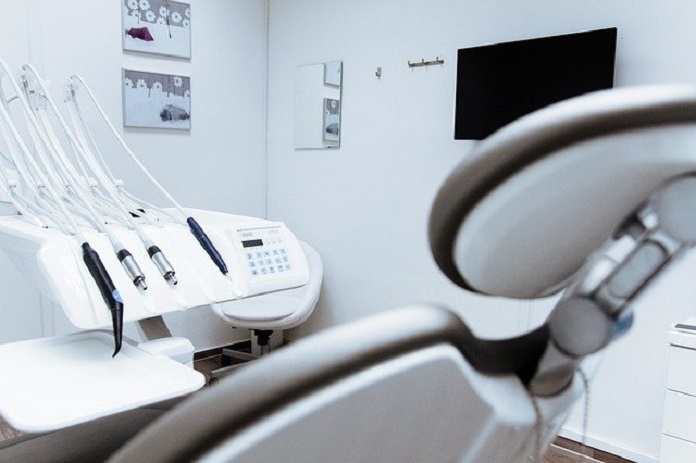At the beginning of the pandemic, clinicians decided to reduce health services, such as dentistry, due to the unknown risk of COVID-19 spread and transmission. However, over the last year, research has increased knowledge in this area significantly, and clinical teams now feel better positioned to make informed decisions around healthcare, including whether it is safe to visit the dentist during COVID-19.
A team of clinicians, dental nurses, scientists, and microbiologists from the School of Dental Sciences, Newcastle University, United Kingdom, conducted a study to understand the spread of airborne particles during dental procedures. The study’s objective was to identify aerosol distribution from dental procedures in an open plan clinic. In addition, scientists looked to explore aerosol settling time after dental procedures.
The study included a total of nine experiments. Six experiments were conducted in an open-plan clinic to investigate aerosol and splatter distribution in this setting. Another three experiments were conducted in a clinical teaching laboratory to examine the persistence of dental aerosols. Researchers conducted the same single clinical procedure in all of the experiments – a ten-minute crown preparation of the right maxillary central incisor tooth. Each of the nine experiments was repeated on three occasions. Elements such as suction, water spray, ventilation, and clinic layout were all analyzed.
The study reported that the majority of contamination was limited to the first 1.5m from the procedure. Therefore, using a 1.5m high lateral bay partition with open fronts, at least 99.99% of splatter following an aerosol-generating procedure is contained within the bay. Researchers detected minimal splatter outside of the aerosol-generating procedure bay. Any distant contamination from settled aerosol was found to be at very low levels.
Interestingly, the water spray from dental instruments caused a significant dilution effect. The study also reported that dental suction has a substantially positive impact, particularly on more distant contamination.
When timed, most contaminated aerosol splatters destined to settle onto surfaces, did so within ten minutes after the procedure had finished. This means that it is suitable to clean the environment at this point.
The research has led to a better understanding of how infected aerosol particles travel during a dental procedure and therefore informed how dentists could safely carry out procedures during the pandemic.
Published in the Journal of Dentistry, the study results have shaped national clinical guidance for dentistry procedures across the United Kingdom, forming key COVID-19 policies for the profession.
It has also led to recommencing the teaching of aerosol-generating techniques to students at the Newcastle University’s School of Dental Sciences. One of the first universities in the United Kingdom to safely return to in-person teaching of procedures during this time. The university took guidance from the study to re-configure clinics allowing for the safe return of student-led treatments on patients.
This study has led to a greater understanding of how to make aerosol-generating dental procedures safer for both the clinician and the patient. However, further research is ongoing and will delve deeper into aerosol and droplets from dental instruments, where they travel, and how far they go. Methods of controlling aerosols in the air are also being investigated.
References:
EurekAlert!. 2021. Research Shapes Safe Dentistry During Covid-19. [online] Available at: <https://www.eurekalert.org/pub_releases/2021-01/nu-rss011121.php> [Accessed 18 January 2021].
Holliday, R., Allison, J., Currie, C., Edwards, D., Bowes, C., Pickering, K., Reay, S., Durham, J., Lumb, J., Rostami, N., Coulter, J., Nile, C. and Jakubovics, N., 2021. Evaluating contaminated dental aerosol and splatter in an open plan clinic environment: Implications for the COVID-19 pandemic. Journal of Dentistry, 105, p.103565.



